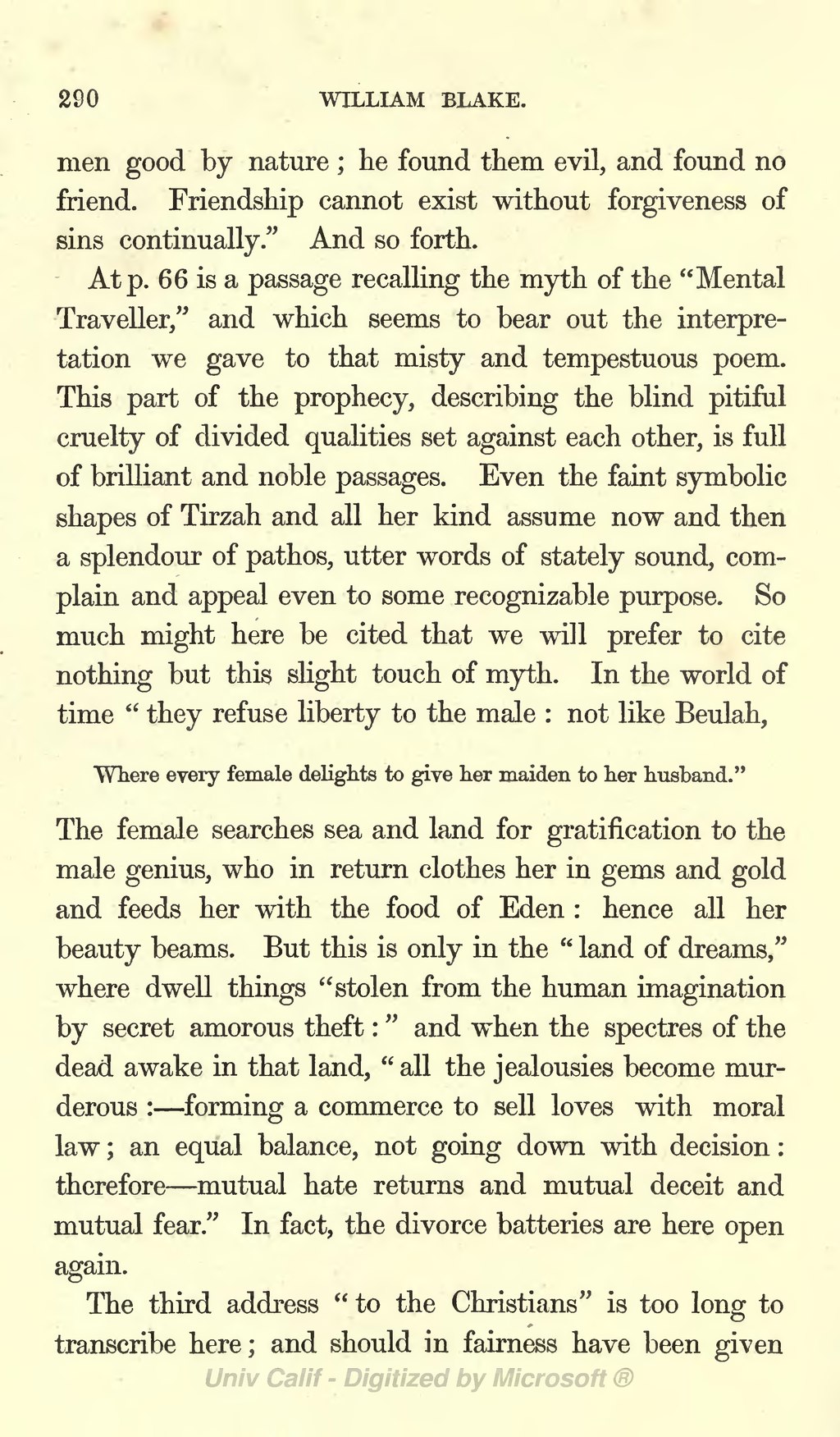men good by nature; he found them evil, and found no friend. Friendship cannot exist without forgiveness of sins continually." And so forth.
At p. 66 is a passage recalling the myth of the "Mental Traveller," and which seems to bear out the interpretation we gave to that misty and tempestuous poem. This part of the prophecy, describing the blind pitiful cruelty of divided qualities set against each other, is full of brilliant and noble passages. Even the faint symbolic shapes of Tirzah and all her kind assume now and then a splendour of pathos, utter words of stately sound, complain and appeal even to some recognizable purpose. So much might here be cited that we will prefer to cite nothing but this slight touch of myth. In the world of time "they refuse liberty to the male: not like Beulah,
Where every female delights to give her maiden to her husband."
The female searches sea and land for gratification to the male genius, who in return clothes her in gems and gold and feeds her with the food of Eden: hence all her beauty beams. But this is only in the "land of dreams," where dwell things "stolen from the human imagination by secret amorous theft:" and when the spectres of the dead awake in that land, "all the jealousies become murderous:—forming a commerce to sell loves with moral law; an equal balance, not going down with decision: therefore—mutual hate returns and mutual deceit and mutual fear." In fact, the divorce batteries are here open again.
The third address "to the Christians" is too long to transcribe here; and should in fairness have been given

